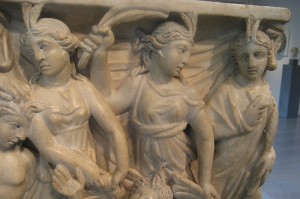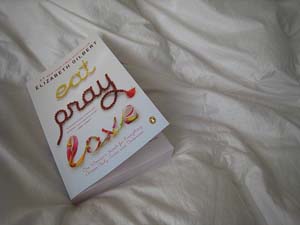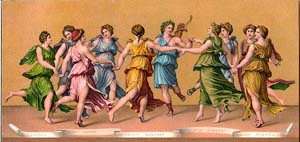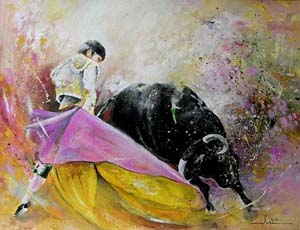 My mom has close to a hundred personal narratives sitting in dusty binders at home. I didn’t even know that she had even written them, over a decade ago for a friend sick with cancer, but one day I came across them and began reading. Every one resonated with an experience that I’d had and left me feeling inspired. I told my mom that she could publish these essays, because people deserved to read them.
My mom has close to a hundred personal narratives sitting in dusty binders at home. I didn’t even know that she had even written them, over a decade ago for a friend sick with cancer, but one day I came across them and began reading. Every one resonated with an experience that I’d had and left me feeling inspired. I told my mom that she could publish these essays, because people deserved to read them.
“Ahh, no,” she said, dismissing the idea. “Those were just for John.” But as she sat there on the couch paging through binder after binder, I could tell that she was seeing the essays objectively for the first time, as if someone else had written them. And I think that she was stunned to realize, “These are good.”
 I use my mom as an example because in this respect, she is just like you and me. I myself have around ten large charcoal and pencil drawings in a portfolio under my bed: portraits, landscapes, and still lifes. My roommates in San Francisco saw them and wanted to hang a couple on the walls, but I vetoed the idea because I could see a flaw in each drawing. Paradoxically, while they weren’t good enough to put on display, but they were good enough to prevent me from drawing anything else since. It’s been seven years now since my college drawing class, and part of me believes that I won’t ever draw as well again. So I don’t draw at all.
I use my mom as an example because in this respect, she is just like you and me. I myself have around ten large charcoal and pencil drawings in a portfolio under my bed: portraits, landscapes, and still lifes. My roommates in San Francisco saw them and wanted to hang a couple on the walls, but I vetoed the idea because I could see a flaw in each drawing. Paradoxically, while they weren’t good enough to put on display, but they were good enough to prevent me from drawing anything else since. It’s been seven years now since my college drawing class, and part of me believes that I won’t ever draw as well again. So I don’t draw at all.
We all have some creative interest that’s lying fallow. We tell ourselves that it’s because we don’t have time to use it, but we know we’re kidding ourselves. What is it for you?
This “brilliant or nothing” attitude stifled me from writing seriously for around ten years. As a child, I wrote for the fun of it, and as a teenager I wrote for the school paper with a compulsive passion. In college, I didn’t write much besides emails and term papers. I began to believe that I’d peaked at 17, and that everyone else had surpassed me in skill by writing for their college newspapers or literary magazines. I avoided even thinking about writing because it made me regret all the years I had lost. It made me wonder what I could have produced, and what I could have been, if I’d kept writing. I felt so much pressure to be as good as I once was that I didn’t even try.
 Elizabeth Gilbert, author of the international bestseller Eat, Pray, Love, says that the pressure to create something brilliant has been stifling artists for hundreds of years.
Elizabeth Gilbert, author of the international bestseller Eat, Pray, Love, says that the pressure to create something brilliant has been stifling artists for hundreds of years.
(As an aside, I must confess that I am in love with Elizabeth Gilbert. It’s not just a girl crush at this point. It’s a deep and long-lasting adoration that makes me want to be just like her, or at least be best friends with her. I suspect that I share this feeling with the millions of women around the world — and the three men — who have read Eat, Pray, Love. Thus ends my ode to Elizabeth Gilbert.)
Last week, Gilbert spoke at the TED conference, which “brings together the world’s most fascinating thinkers and doers, who are challenged to give the talk of their lives (in 18 minutes).” Wired Magazine reports that Gilbert felt pressured to perform again after writing an unexpected bestseller.
“Everywhere I go now people treat me like I’m doomed,” she said. She thought about how creative people have a reputation for being mentally unstable, which she attributes to pressure to perform and live up to expectations for brilliance from themselves as well as the world.
She looked at other societies to see how they regard this pressure on artists and found an answer in ancient Greece and Rome. In these places, people didn’t believe that creativity came from inside. They believed it was an attentive spirit that came to someone from a distant, unknowable source, she said.
This view served the artist’s mental health, she suggested, because by attributing the artist’s talent to an outside force, the artist was relieved of some of the pressure to perform, and was not narcissistic. If an artist’s work was brilliant, the outside force got the credit.
All that changed with the Renaissance when mysticism was replaced by a belief that creativity came from the self. For the first time, people started referring to an artist as being a genius rather than having a genius.
“Allowing somebody … to believe that he or she is … the essence and the source of all divine, creative, unknowable, internal mystery is just like a smidge of too much responsibility to put on one fragile human psyche,” she said. “It’s like asking somebody to swallow the sun. It just completely warps and distorts egos, and it creates all of these unnatural expectations about performance. I think the pressure of that has been killing off our artists for the last 500 years.”
Gilbert talked about how in the ancient deserts of North Africa, people would perform sacred dances. Sometimes a dancer would be overcome with a transcendent force, and everyone else would chant, “Allah, Allah, Allah” (God, God, God). They recognized that the dancer owed the moment of brilliance to something outside of herself.
As an aside, she noted that when the Moors invaded southern Spain they brought this custom with them, but the pronunciation changed over the centuries from chanting Allah, Allah, Allah to chanting Ole, Ole, Ole, which is now heard at bullfights and flamenco dances when a performer does something incredible.
Gilbert said that we might be better off if we never believed that we were responsible for our own talents, but rather that we were lucky if the Muse visited us for a time and then moved on to someone else.
…When she now feels pressure to produce she just tells herself to forge ahead and do her part and let go of the expectation that it has to be brilliant.
“Just do your job,” she told the audience. “Continue to show up for your piece of it. If your job is to dance, then do your dance. If the divine, cockeyed genius assigned to your case decides to let some sort of wonderment be glimpsed for just one moment for your efforts, then Ole. And if not, do your dance anyhow. Ole to you, nonetheless, just for having the sheer human love and stubbornness to keep showing up.”
It’s not your responsibility to be brilliant. Your job is just to show up. Even if you’ve been a creative truant for twenty years, today’s the day to make an appearance. Start typing right now and see what comes out. Pick up a pencil and sketch for five minutes. And if you happen to be visited by the Muse, today or next week or two years from now, then Ole.
Thanks to Amando Balbuena for sending the Wired article. Read the full article here. A few essays by my mom, Laverne Mau Dicker, are here.
Your Two Cents: Leave a Comment!
What creative interest do you avoid because you feel pressure to be brilliant?


Brilliant post, and I know you’ve mentioned this roadblock before, but framing it with examples from your mom and from Elizabeth Gilbert makes it that much more understandable. Let’s see, things I don’t do because I’m afraid I won’t be as good as I want to be: writing, singing, acting, souffles… those are the biggies. Writing without a “job” scares me, but probably mostly because it would scare my parents. I hate rejection, so all those “No, thank you” letters in my writer’s garret would be excruciating. Singing I keep to myself most of the time, but there it’s not a case of being as good as I was, it’s more a case of not being as good as I wish I was. And acting- again with the rejection, again with the parents being scared, again with the not being as good as I want to be. Not that I peaked at 16, but maybe that that was the last time I felt secure enough to give it my all. And souffles, well, they’re just intimidating- look at how beautiful and poofy they are!
Rejection and not being as good as I wish I were — that sums up why I haven’t auditioned for plays in the past or submitted writing for publication. I feel “behind,” like it’s too late for me now because I’m competing against people who’ve done these things for years.
I’ve found that the biggest challenge is just plunging in and getting over the initial hurdle of years of inertia and regret. With writing, what helped me break through was 1) writing with kids, and 2) starting a blog.
1) I stumbled into leading an after-school creative writing club and would do the exercises I gave to the kids. It was liberating to share our writing, because the kids hadn’t yet developed the fear of not being good enough.
2) In Fall 07 I finally started a blog to inspire me to write more. It was free and easy to create, and no one had to grant me permission to publish. It took me a while to start writing regularly. Once I found what I loved to write about — education and personal development — and got feedback from readers, I felt more inspired to write. The best thing about a blog is that you can go back and make little editorial changes, or even delete a post, which takes away my fear of creating something flawed that becomes fixed in stone.
If anyone’s interested in starting a blog, you can do it now for free. I recommend http://www.wordpress.com or http://www.blogger.com.
The one creative pursuit from past years that I haven’t engaged in at all for a long time is writing and drawing comics.
I have a hard time “showing up” to creativity for creativity’s sake. When I do design work, there are prompts like getting money, a deadline, and it’s natural for me to interpret conversations with clients into successful designs for them.
If I’m in a position to create something new, however, the blank page is something that’s daunting. I grew up reading and drawing comics and feel that academically I understand the art form now to go back and do something new. However, I always put it off for some opportunity, or some imagined time when I will have free time to sit with it instead of just jumping in and seeing what happens.
BEAUTIFUL, BEAUTIFUL, BEAUTIFUL! I’ve read a lot about how the “Muse” is an interesting predicament for women writers, especially. Many women find they have to renegotiate the traditional relationship with “her” or re-envision the Muse completely. Whatever works!
Great post! I don’t know if you were counting me as one of the three men in the world that appreciate Elizabeth Gilbert. If not, make it four.
I only recently have begun to overcome the oppressive clutches of self-editing. My beloved muse has inspired me to let go of tendency to over-analyze my own work and to see its uniqueness. She has inspired me so much that on March 1, I will be hanging some of my photographs for the first time in a gallery! (One Blu Wall in Fondren)
A lot of it has to do with finding value in what you do. My most major obstacle is thinking that the things I write or make or do aren’t worth someone else’s time. I see great photographs and think, “Mine aren’t that good.” But, it’s not always the case. Everyone has their own view of the world. It’s the uniqueness of that view and how one chooses to convey it that makes art beautiful.
I’m feeling such editing as I write this comment, and I’m sure, Melia, that you felt it as you were writing this post. It’s hard to quantify the things in your head, but it’s through the thoughts of others that truly learn about the world. So, thanks!
[c]
great post, thanks for some inspiration on a Monday
Great post! I think my muse and I have an abusive relationship, and it’s reassuring to read words of encouragement from someone like Elizabeth Gilbert (I’m so jealous of her… I still haven’t finished her book out of envy). I’m getting better at just showing up and doing my job and not pressuring myself to be brilliant, but it’s always a challenge.
And I just re-read some of Mom’s John essays; they’re so beautiful. I remember constantly why we love to write.
You nailed it! Who hasn’t felt that way? I want to create but it won’t be any good and if it can’t be the very best ever why bother?
Brilliant or nothing – that’s it! Exactly what so many creatives struggle against. Great post.
I, too, am enamored with Elizabeth Gilbert.
It’s awesome to know that this is something that everyone goes through. It’s so easy to encourage other people to be creative, and to see their talent, but somehow not so easy when it comes to ourselves.
Chris, congrats on the show — you know I’ll be there. I didn’t know that you did art photography. You’re absolutely right that I edit and re-edit, to the point where I delay or don’t finish a piece of writing because it’s not quite perfect yet. It’s “how one chooses to convey it that makes art beautiful” — well put. I love that people can go through the same event (like a wedding) and not only experience it differently, but capture it differently in their art and writing.
Also, I wasn’t counting you as one of the male Eat, Pray, Love fans (three was my best worldwide estimate), but I welcome you to the fan club.
Gill, isn’t it uncanny how similar our writing styles are to mom’s? Genetics are weird, but in this case I’m grateful for them.
Keetha, there must be a way for us all to be best friends with Elizabeth Gilbert. I heard her speak last year, and I’m sure I saw her look at me across the auditorium and mouth the words, “Call me!” But alas, I didn’t have her phone number.
I just wanted to re-read this post, for the sheer thrill it gives. Just show up! I feel the mice in the attic perking up their ears…
Hehe, maybe I’ll reread it, too, and take my own advice. Gotta get a lot of writing done before leaving for Mardi Gras tomorrow, so no better time to invite the Muse to visit. And I just realized that tonight is the Muses parade in New Orleans! So well-timed comments as usual, my dear.